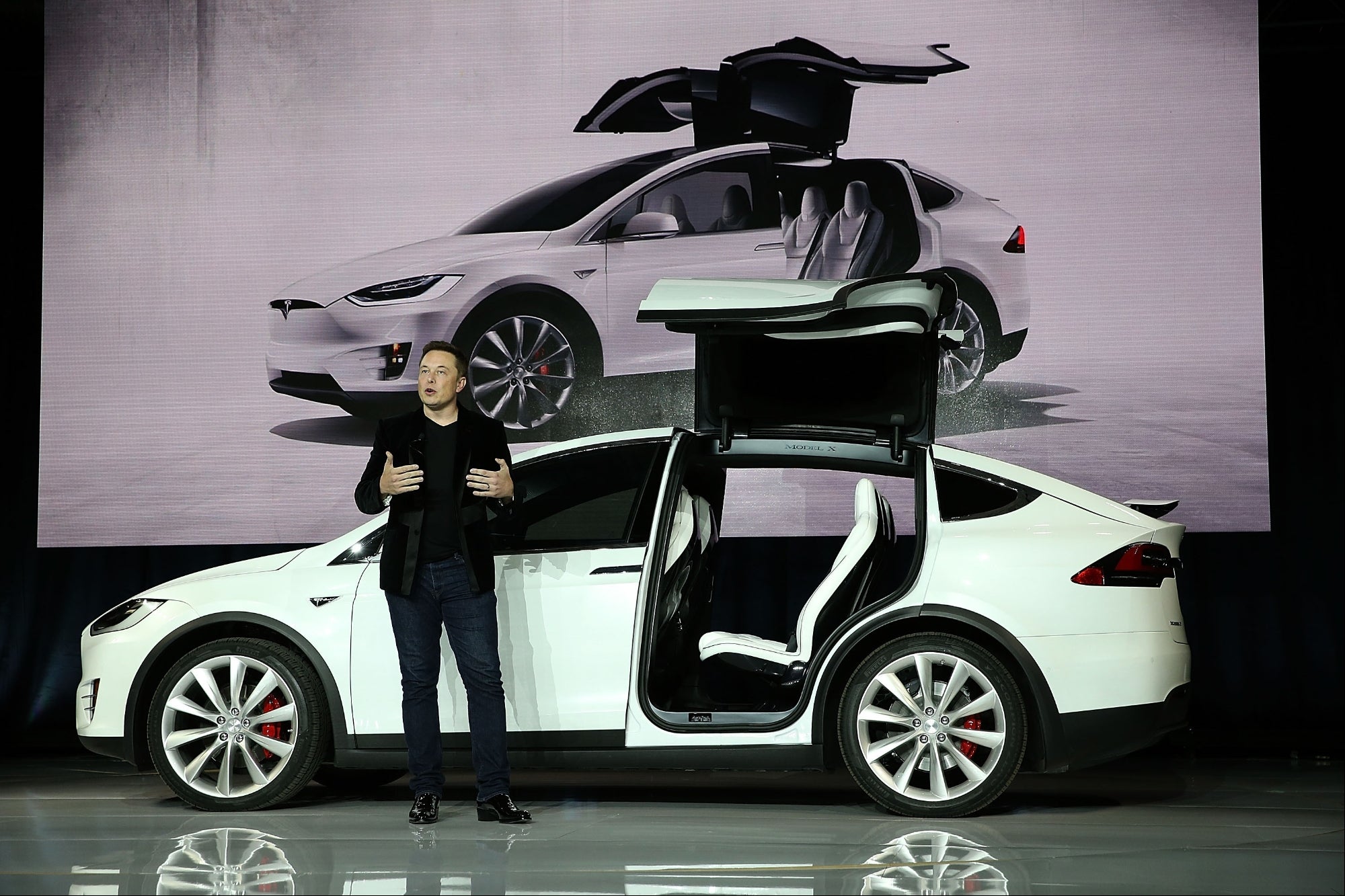A lot of business — and the attendant court cases — flow through Delaware, and it looks like the CEO of Tesla and “Chief Twit” at Twitter Elon Musk is about to spend some time in the state.
 Justin Sullivan I Getty Images
Justin Sullivan I Getty ImagesThe world’s richest man acquired Twitter in late October after getting sued by the company in Delaware’s Chancery Court to make him go through with the deal. Now, the same court — and the same judge as the Twitter case, Kathaleen St. J. McCormick — will hear a different case related to Musk on November 14.
The lawsuit, filed by Tesla shareholder Richard Tornetta, claims that Musk’s board-approved compensation package from 2018 was excessive and breached the board’s duties to shareholders. Further, the suit claims Musk has too much on his plate to pull a compensation package that can go up to a value of over $50 billion, per TechCrunch.
The legal documents call it “the largest compensation grant in human history,” the outlet noted.
Tesla and Twitter are both incorporated in Delaware, as are most very large businesses, due to the state’s tax benefits. This is why both cases will be in the state’s Chancery Court. It has “unique competence,” in the nitty-gritty of business law.
What is the Tesla lawsuit about?
Musk’s compensation (stock options, salaries, and bonuses) as CEO of Tesla (going back to 2009) was pegged to performance, as noted in the 2019 pre-trial opinion from Joseph R. Slights III, who was formerly vice chancellor of the Court of Chancery. (McCormick took over the case from Slights.)
After Tesla met the goals outlined in past compensation packages, the board created a new one for Musk and voted to approve it in January 2018.
The new package set a series of 12 performance goals, and corresponding groups of stocks, related to Tesla’s ability to increase its market capitalization, as well as revenue and earnings. Upon hitting those goals “corresponding to each tranche of the Award, options held by Musk representing 1% of Tesla’s current total outstanding shares will vest,” Slights wrote.
This means that Musk would earn the equivalent of 1% of the company’s total outstanding shares. If he met all of those goals, Slights added, the maximum value of the total stock grant is $55.8 billion. The company has met 11 out of 12 so far, per TechCrunch.
Tornetta sued in 2019 saying that the package was too large and did not motivate Musk to focus on Tesla versus his other ventures. Musk, of course, is a busy man. He is the listed CEO of Tesla and SpaceX and now Twitter, at least in the interim.
Related: Elon Musk’s Twitter Mass Layoffs Have Begun: ‘Has The Red Wedding Started?
Musk’s legal team has said that a one-of-a-kind, high-powered CEO deserves a high-impact compensation package.
“The plan designed and approved by the board was not a typical pay package intended to compensate the ordinary executive for overseeing the day-to-day operations of a mature company,” a Musk attorney, Evan Chesler, wrote in a filing, per Bloomberg Law. “That is because Musk is not the typical CEO.”
Further, the lawsuit claimed that because Musk is friends with board members Ira Ehrenpreis and James Murdoch, he generally exerts too much influence over it — despite recusing himself and his brother Kimbal from the compensation discussion — and the decision was not fair, according to TechCrunch.
The question of whether or not there was a conflict of interest is part of why the Slights initially denied Musk’s attempt to dismiss the suit.
Typically, the court would leave executive compensation up to a company, and “this court’s earnest deference to board determinations relating to executive compensation does not jibe with our reflexive suspicion when a board transacts with a controlling stockholder,” Slights wrote in the 2019 opinion.
Whether to not Musk was operating as a controlling stakeholder (Musk owns the largest stake in Tesla but not the majority, leaving it up for debate) will likely come up again as McCormick hears the case, one expert told Bloomberg Law.
Generally speaking, “this has the potential to be a very important case from an executive compensation standpoint,” business law professor at the University of Pennsylvania Jill Fisch told the outlet.
“It won’t get the attention the Musk-Twitter case got from the general public, but it’s still important,” she said.
https://www.entrepreneur.com/article/438727

